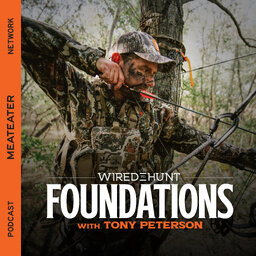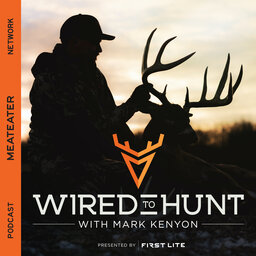Ep. 893: Foundations - How to Level Up Your Turkey Calling Game
On this episode, Tony breaks down the common mistakes a lot of hunters make while calling, and he explains how they can get better no matter what type of call is their go-to.
Connect with Tony Peterson and MeatEater
Tony Peterson on Instagram and Facebook
MeatEater on Instagram, Facebook, Twitter, Youtube, and Youtube Clips
MeatEater Podcast Network on YouTube
Shop MeatEater Merch
In 1 playlist(s)
Wired To Hunt Podcast
Dive deep into the world of whitetails with leading expert Mark Kenyon. Each episode covers specific…Social links
Follow podcast
Recent clips

Ep. 1010: The Power of Prairie for Whitetails and Beyond with Kent Boucher and Nicolas Lirio
1:20:54

Ep. 1009: Foundations - E-Scouting Mistakes That Could Cost You a Big Buck This Season
18:38

Ep. 1008: 2026 State of the Whitetail Union with Kip Adams
1:06:45
 Wired To Hunt Podcast
Wired To Hunt Podcast